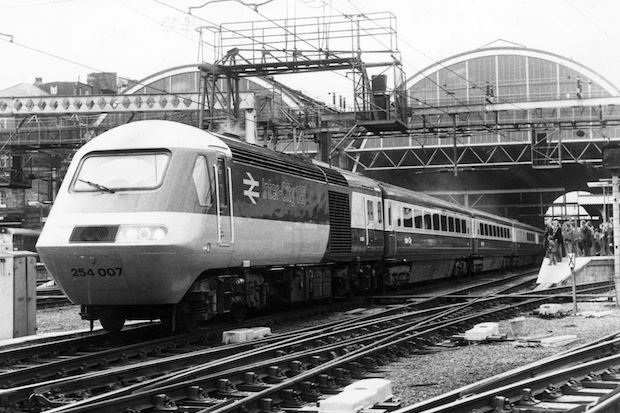Andy Burnham and Jeremy Corbyn have both pledged to bring back British Rail. Why? In a speech yesterday, Corbyn justified his position: ‘I think the public mood is there, absolutely there, saying, “Bring our railways back into public ownership.” And we’ll all get a better and much more integrated system as a result’.
Headline figures from recent polls suggest he may have a point: a YouGov survey from early August said 58 per cent supported ‘bringing the railways, water companies and other utilities back into public ownership through renationalisation’. But this could be classified as a ‘would you like a pony’ polling question; it offers no explanation of what renationalisation would entail, only hinting at a fantasy land where fares are cheaper and everything runs on time.
The same pollster conducted a more comprehensive survey in May last year, which looked at the reasons why a majority support renationalisation. 62 per cent said they think railways ‘should be accountable to taxpayers rather than shareholders’, just under half think rail fares would go down and 43 per cent reckon it would be ‘more cost-effective overall’.
Railways are already accountable to taxpayer: the Department for Transport oversees the tendering process and intervenes when railways aren’t delivering. Franchising and railway performance are frequently raised at Transport Questions in the Commons too. Neither Corbyn nor Burnham have provided any evidence that a nationalised railway would have cheaper ticket fares too — either the government would have to cut back on infrastructure improvements or pour money into the railways. Supporters of nationalisation often cite that money is wasted on the franchising system but taxes paid by the rail industry came to £3.89 billion last year, almost offsetting the £4 billion of government funding
Burnham and Corbyn do have a point on ticket fares. An analysis by the BBC shows it’s a mixed picture over the past 20 years: many fares have risen dramatically since the final British Rail figures were published in 1995, others have stayed in line with inflation. The government is attempting to address this: the rail minister Claire Perry announced yesterday the government will stop ‘inflation-busting fare increases,’ freezing them in real terms for the rest of this Parliament.
But the flip side of these fares is that our railways are better than ever. Investment has increased nine-fold since the death of British Rail, reaching £6.8 billion in 2013/14. Significant parts of the railways are being electrified, new trains are being built to replace the 1970s InterCity rolling stock and HS2 is well on its way to construction. Two of London’s major terminals, St Pancras and Kings’ Cross, have been completely overhauled in the last decade, a symbol of how our railways have improved.
Rail journeys have doubled since privatisation, the number of journeys made each year have risen to almost 1.6 billion, with 4,000 more services running each day since the mid 90s. Plus, freight traffic has increased by 77 per cent. Services are punctual too: the UK scored 92 per cent, compared to 90 per cent for France and 80 per cent in Germany. Overall passenger satisfaction reached 81 per cent in 2013, up 8 points in the last decade.
There have been ups and downs to rail privatisation and there is always room for improvement. But if the next Labour leader wants to spend billions bringing our railways back into public ownership, he should explain exactly what benefits it will bring and how it will be funded. Otherwise, it looks like an nakedly ideological proposal — as today’s editorial in the Guardian suggests. Nationalised railways would most likely end up facing a decision between investment and ticket prices. Public pressure on the government would most likely see the latter become the top priority. And before you know it, we would be returning to an underfunded, creaking system.






Comments